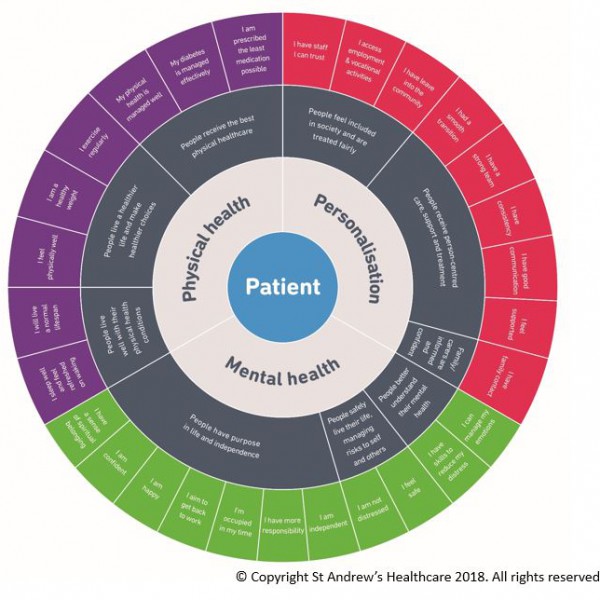Measurement Tools
To record these measurements we have developed an Outcomes Framework (pictured right) which is in the shape of a wheel. It was produced together by our clinicians, patients and carers, and covers three main areas: mental health, physical health and personalisation of care. Our clinicians and multi-disciplinary teams use the framework to monitor patients’ progress, their quality of life and importantly, their experience of the care they receive at St Andrew’s.
By measuring outcomes regularly and consistently, we are able to prioritise the use of our resources to ensure we use them where they can have the greatest impact and provide the greatest value. This ‘value-based healthcare’ model was pioneered by Sir Muir Gray in Oxford and by Professor Michael Porter and Professor Elizabeth Teisberg at Harvard University in the USA. We are the only mental healthcare provider in the world to adopt this strategy holistically across the whole organisation.
- Measuring outcomes and experience – leaflet
- Measuring outcomes and experience – an Easy Read leaflet
Some of the measurements tools we use include:
- Health of the Nation Outcome Scales (HoNOS)
- Clinical Group Impression Scale (CGI)
- Friends and Family test
- Recovering Quality of Life (ReQoL)
Collecting information using these allows us to compare our outcomes with other national or international mental healthcare providers.
 PICU and Acute Bed Availability
PICU and Acute Bed Availability


